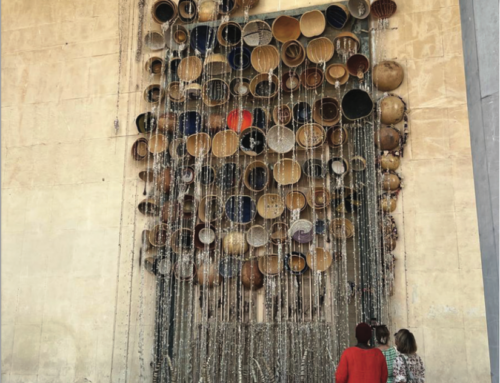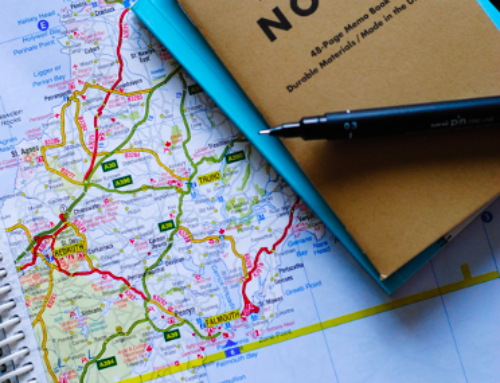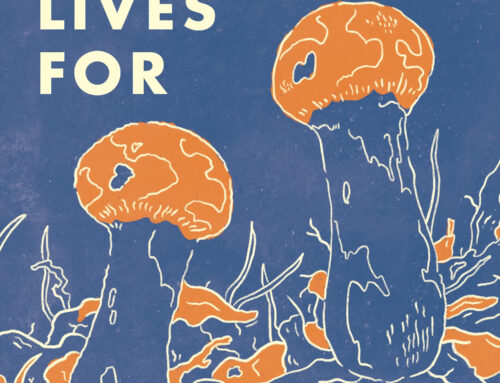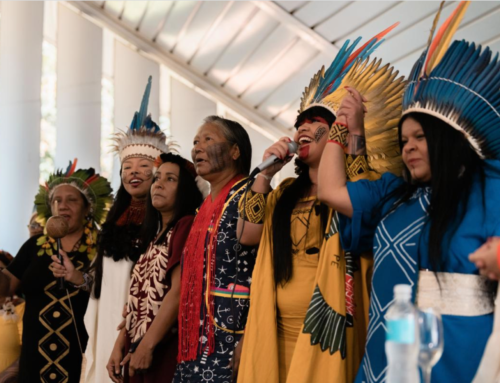In the lead up to American Ethnologist’s special forum “Decolonizing Anthropology: Global Perspectives” (forthcoming in issue 50.3, August 2023), AE editorial assistants Charlotte Jolly and Eleanor Pollard visited Dr. Lily George, an Indigenous, Māori (Ngāpuhi) anthropologist based in Aotearoa New Zealand at her home and marae in Waikare, where this interview took place.
Dr. George practices action-based research, geared toward finding pathways for healing from the impacts of colonisation. Her research has focused on historical trauma, youth education, healing and transformation, and Māori women’s experiences of incarceration and recovery from neo-colonial injustice. She is the co-editor of Indigenous Research Ethics: Claiming Research Sovereignty Beyond Deficit and the Colonial Legacy (2020), and Neo-Colonial Injustice and the Mass Imprisonment of Indigenous Women (2020). In recent years, Dr. George has returned to her birthplace and papa kāinga [ancestral home land], Waikare, where she and her hapū [sub-tribe], Te Kapotai, have implemented a series of community development projects, including civil defence upgrades, health initiatives, youth programmes, and te reo and tikanga Māori [Māori language and custom] programmes.
For more on the impact of Dr. George’s work, especially on how it has shaped the work of other Māori scholars, see the upcoming article in AE: “Cultivating a Trauma-informed Anthropology: Decolonizing pedagogies in Aotearoa, New Zealand” by Tarapuhi Vaeau and Catherine Trundle.
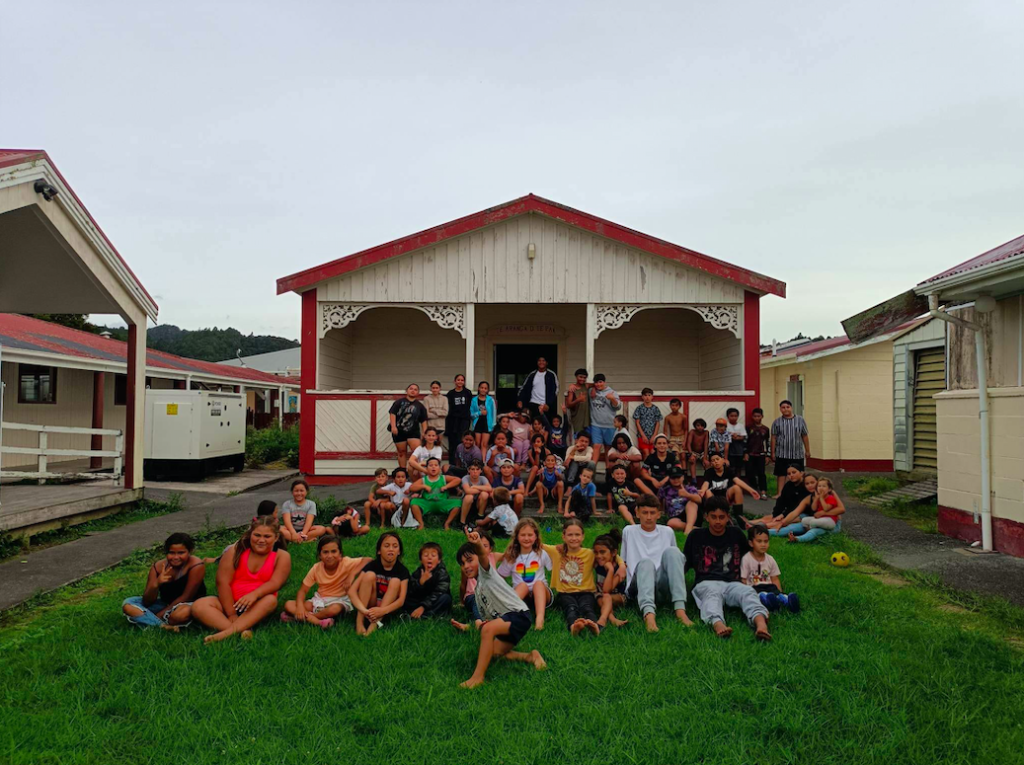
Te Puna Atawhai – Waikare. Photo supplied by Lily George
Lily George (LG):
Tēnā kōrua, ngā mihi mahana kia kōrua [Warm greetings to you both].
Ko wai au? Ko Kapowai te maunga, Waikare te awa, Ngāpuhi te iwi, Te Kapotai te hapū, Waikare te tūrangawaewae. Nau mai haere mai ki Waikare. [Who am I? Kapowai is my mountain, Waikare is my river, Ngāpuhi is my tribe, Te Kapotai is my sub-tribe, Waikare is my standing place where I belong. Welcome to Waikare.]
Charlotte Jolly (CJ):
Tēnā koe Lily, thank you for hosting us. We wanted to start by asking you about the value of anthropology, given the baggage it has as a discipline…
LG:
Anthropology does have lots of baggage, but so do all the other disciplines. My theory is that anthropology has a bad reputation with Indigenous peoples because of the way we work. By that I mean because of methods such as participant observation, anthropologists are more likely to form relationships with a group of people and get really close to them, you know, and that can happen over time. So if anything goes wrong in that relationship it impacts the people a lot more. Researchers from other disciplines have done similar things, and some worse things as well, in the kinds of research that they have done. But anthropologists have got the worst reputation because of the fact that we go into the villages or communities and participate rather than just in and out.
Eleanor Pollard (EP):
It’s a bigger responsibility. And I guess it feels like more of a betrayal then, if it goes wrong.
LG:
Yes, if things go wrong, it does feel like a bigger betrayal. I remember reading Native American (Cree) writer Cora Weber-Pillwax (2001). She wrote about reading an article written by an Anthropologist on some Cree people and then coming across this piece about her grandfather. She said not only did none of her family know that her grandfather was going to be in there and felt horrified by the description of him, but the anthropologist had also misinterpreted and taken out of context some of what he had said. So she felt extremely betrayed by that. An outcome for her, then, was to contribute to developing Indigenous ways of researching that were culturally safe and of benefit to the communities involved.
Despite what has happened within anthropology at times, however, I believe it still has a lot to offer, because of the fact that we try to build relationships with people and often those relationships are long term. Along with that comes some really big challenges, as you would have within any relationship, trying to maintain that relationship with integrity. And this makes sense to me, because within Māori culture, relationships are at the core of our culture – our relationships with ourselves, each other, the environment and the world of spirit. That is probably one of the reasons anthropology resonated with me right from the beginning, despite me not having much Māori cultural knowledge at that time.
Participant observation has a lot of similarities with kaupapa Māori research [culturally and historically informed research principles for working with Māori] –the need to build relationships, or go into the village, as Malinowski used to say, “get down off the veranda” and participate rather than just observe. Relationships are key.
Why do I consider myself an anthropologist given the negative reputation anthropology has for many Indigenous peoples? I’ve certainly had to face challenge and criticism because of being an anthropologist. But I draw from the intellectual traditions of being Māori as well as learning anthropology. And I’m always clear though that I’m not just an anthropologist, I’m an Indigenous anthropologist. In my doctoral thesis (George 2010), I defined this as someone who works mainly with his or her own people; who is aware of the political and historical context, issues and challenges within which we work; with research that privileges Indigenous issues and knowledges. I call myself an Indigenous rather than a Māori anthropologist, too, because that connects me with other Indigenous anthropologists and the wider history of colonization and decolonization.
EP:
We were also interested in asking you about reflecting on your article, Stirring up Silence (George 2018) [a pointed critique of the unresolved tension between anthropology and indigeneity within New Zealand universities]. What would you like to see going forward for the discipline of anthropology in Aotearoa [New Zealand]?
LG:
I think it’s time to create a real space within anthropology for Māori anthropologists which recognizes that special relationship that Māori have in Aotearoa as the people of the land, Tangata Whenua. And it’s about being able to acknowledge the history with Māori in New Zealand and anthropology. There were some unethical, racist, and prejudiced anthropologists studying on Māori in the past. That’s just a fact of life. They were the product of their time and training, and so just acknowledging that history is important, without carrying the guilt – you learn from it, yes, but you don’t have to feel guilty about it. I think a big part of decolonizing anthropology is for non-Māori, non-Indigenous anthropologists to be able to face our shared history, with honesty, with integrity, and sensitivity.
And, I think, giving full legitimacy to the idea that you can study your own people and that is totally legitimate anthropology, that anthropology is no longer about studying “The Other.” There’s a huge benefit in studying ourselves and learning more about ourselves.
CJ:
Do you think that your challenge to anthropology in Aotearoa to “stir up the silence” that lies between indigenous and non-indigenous scholars has begun to be answered in the five years since your essay?
LG:
There are some wonderful young Māori and Pacific anthropologists coming through, and that’s really exciting. Such as Tarapuhi Vaeau. Have you heard of her?
EP and CJ:
Yes! Tarapuhi Vaeau has an article in American Ethnologist’s upcoming decolonization issue.
LG:
Yes, she’s really amazing, and others such as Jade Gifford and Pounamu Jade Aikman. They question their discipline, both as a body of knowledge, and of the practices they undertake in order to expand and develop that discipline. As with many a younger generation, they seek to push and stretch and explore beyond the foundations laid by the generations before them. That’s as it should be.
I’m also very encouraged to see what some young non-Indigenous anthropologists such as Sebastian Lowe are doing. Sebastian is a New Zealander of European descent doing his doctoral studies at James Cook University (Australia) and Aarhus University (Denmark), with Māori from Aotearoa New Zealand on the use of taonga pūoro [traditional Māori music instruments] in healing. Immediately that could throw up a red flag for Indigenous peoples—yet another “white” anthropologist studying “the natives!” But Sebastian, like many younger anthropologists, is more aware today of the context within which he researches, of the political and historical nature of the context, and their responsibility to work with integrity and in more respectful ways with Indigenous peoples—with peoples generally ultimately. So he took the six months or so before starting his doctorate to travel around Aotearoa and talk with many Indigenous and some non-Indigenous researchers and scholars, particularly in the region where he was researching. He explored notions of pre-ethics and a deeper deep listening and stated:
Pre-ethics does not presume that research will go ahead. That is the point. Pre-ethics requires that one situate oneself in a relational field of accountability and collaboration from the very start of a research project; to be willing to have one’s project radically reshaped by others and to abandon ideas imagined from afar if they prove wrong-headed or otherwise inappropriate by potential collaborators (Lowe et al. 2020, 279).
One of the things I love about the book, Indigenous Research Ethics: Claiming research sovereignty beyond deficit and the colonial legacy (George et al. 2020) is that third section which looked at collaboration between Indigenous and non-Indigenous researchers and how that can work effectively. I think that’s a really important area to explore. Decolonization is not just about Indigenous people recognizing that they’ve been colonized. Decolonization is about everyone recognizing how we’ve all been colonized in a sense. Non-Indigenous people may not have had the colonization experience, but you’ve certainly grown in a society and context within which that happened, and the impact of that has been felt whether you’ve been conscious of it or not. So decolonization, I think, is about bringing those hidden things to the light, stirring up the silence, and learning to talk about what lies between us, what lies around us, what lies within us. I think that’s what decolonization is.
CJ:
In terms of decolonizing methodologies—in Indigenous Research Ethics (George et al. 2020), there is a discussion about research that you were involved with, driven towards coming up with a suicide prevention strategy for Māori youth. You handed over the research methodology to the rangatahi [youth] in question. They were included in the research, not just as informants but as integral voices designing the research process. I have a quote, you write:
“Given a space of safety from which to speak and in which they knew they could be heard, the youth were enabled to heal, connect more strongly to culture and people, and develop their leadership abilities — themes they identified at the end of the first project as important to their growth” (George et al. 2020, 2).
Could you tell us a bit more about that process?
LG:
So that is a good example of how anthropology can teach us in that kind of paternalistic manner—to impose ideas, impose structures, impose behaviours; without giving much thought really to what the people themselves might want. In the beginning of that project, we might have talked to a few youth but probably not that many, and we developed the project initially because adults recognized the high incidence of suicide amongst Māori. From 2011 to 2012, there was a 400% increase in suicide in Northland, too many of whom were Māori youth. So we set up a project to start in 2014. The purpose of it really was to provide a safe space for those rangatahi [youth] to come and talk about what was going on with them. Not just suicide, because suicide is a symptom of other issues that are going on. So talking about all the challenges; being able to articulate those—to write them out, act them out—we used art and drama a lot in that one.
At the end of each wānanga [gathering] we had a feedback session or what we call a whakawātea, and it was in that first session that the rangatahi said, “well actually that’s really boring, and we want to do this and we want to do that and we want to do this.” And, we could have carried on and insisted that we do what was already planned. But instead, we chose to let them have space and voice in the process, and I think that is a big reason for the success of the projects. That was the first of three.
I’ve come a long way since 2014 in my own research practice, in being able to fully recognize that even rangatahi [youth] should have a voice in what you’re doing. Honouring the contribution of whoever it is that you’re researching with—honouring their expertise, because they are experts of their lives, you aren’t—and enabling that collaboration to work together. So it is in forming initial ideas, to design of the project, and right through to dissemination. While I knew the theories of collaborative and kaupapa Māori research and had tried to practice those as much as possible, it wasn’t really until this set of research projects with those amazing rangatahi that I really learned what it is to research with people.
EP:
Your work deals with Historical Trauma Theory (HTT). Why do you think this is a useful frame for understanding the ongoing impacts of colonization in Aotearoa?
LG:
When I first came across HTT, I was doing a Postdoctoral Fellowship looking at the incarceration experiences of Māori women. I worked with twelve women; eleven had been in prison themselves and the twelfth had six of her ten children who had been in prison at some stage. And when I was doing the initial literature review for that project in 2011 and 2012, I came across a PowerPoint by Karina Walters from her presentation to the International Indigenous Research Conference run by Ngā Pae o te Māramatanga in Auckland. And it was kind of like a signpost I guess, because it was just a PowerPoint. But it gave me the concept of HTT, and from there I searched to find more articles. There were quite a few about it at the time.
However, I found over the next three or four days that my mood went down and down and down until I felt really quite depressed. And then I realized what was going on was that I was thoroughly identifying with what I was reading. From that I came to realize that HTT gave me personally an important way of understanding the experiences of my ancestors, including my parents and grandparents, and how those impacts had carried through to today—to me, to my children, but hopefully not so much to my grandchildren. I was then able to look at what had happened in a more constructive way. You know, you can get so caught up in the trauma of your life experiences that it becomes difficult to find understanding and compassion for your parents, your grandparents, your great-grandparents, or whoever it was that you think caused the situation that you may have been raised in. But HTT gave us a constructive way in which to understand that.
For example, my hapū [sub-tribe] of Te Kapotai welcomed the initial people who came here from the early 19th century. We were trading with them, some of the women were sleeping with them, having babies, and so our ancestral lines were getting mixed. Waikare is not far up the river from Russell, Kororāreka [the first New Zealand capital], so the proximity gave us those conditions. We grew large gardens and traded vegetables and other foodstuffs, but because of the unruly nature of the new settlers, He Whakaputanga, the Declaration of Independence, was signed in 1835 and the Treaty of Waitangi in 1840, and our ancestors willingly signed. Very quickly, though, those ancestors could see that the promises of the Treaty weren’t being upheld and they fought back against those broken promises. This included the sacking of Russell township and the cutting down of the British flagpole by Hōne Heke, although he’s from a different hapū. In retaliation the British troops went up the Waikare River and destroyed our village and killed some of our people, and basically destroyed the economy that my ancestors had built up to that point. Our people never really recovered from that. And it has just worsened over the subsequent generations.
We were a very strong and powerful tribe up to that point, but over time that diminished until you get to my generation, most of whom were not taught te reo Māori or tikanga Māori [Māori language or culture]. Many of us felt embarrassed and ashamed about being Māori because of what we felt in society around us; what Karina Walters (2006) calls microaggressions; everyday racisms. Various dysfunctions that are the outcome, then, of intergenerational trauma, arose within the community of Waikare and are still manifest today.
Historical Trauma is about traumatic events that happened and the impacts they had; how the trauma is carried from generation to generation. And so colonization is an easy one to look at, and the diminishing of culture and economy; whatever economy there was. HTT gave me—and many other Indigenous researchers—a way, first of all, to understand what had happened in my own whānau (family) and community, in our hapū. Looking at it further, it helped us to understand the effects of colonization all over New Zealand, all over the world, which we initially considered in terms of what John Bodley (1975) called “victims of progress,” but which Indigenous peoples came to redefine in a more affirming way.
HTT is a very useful frame, firstly to acknowledge what had happened and to understand it. It’s actually a really good model for anthropology to move through, too. But the ultimate goal of HTT is healing. So it wasn’t just about knowing it and understanding it and talking about it. It was moving beyond that; moving beyond those experiences towards healing—whatever that looks like for you. And being able to self-determine what healing looks like, not having healing imposed either by external forces.
Healing is not about going to a psychiatrist or psychologist or therapist, although you may need that, it may be part of it. Healing could be purely just recognizing that you had traumatic experiences, because for a lot of our people, they don’t. The stuff that happened, it becomes almost normal. “It’s what happened to my mother before me. It’s probably what’s going to happen to my daughter.” So it’s not recognized as trauma, as something that shouldn’t happen to you. Simply recognizing trauma is healing, because you cannot heal from something you don’t recognize. Healing can be about developing a better relationship with your mother. Healing can be choosing to be a better mother—that’s not just healing yourself, it’s healing for your children. Healing might be that you pray every day. Healing might be that you sing when you wake up in the morning. Healing has to be something that you choose for yourself. It can’t be that someone else is telling you to heal.
CJ:
One thing I really like about all of your writing is this strong current of hope throughout it. This sense of looking beyond the present and of transcendence. I have a quote here from “Stirring Up Silence.” You write,
“[d]ecolonization, I believe, is about acknowledging the history, of being willing to deal with it – with the consequences, with the impacts, with the emotions. It’s about being able to look beyond the consequences and the impacts also, to see the strength and beauty” (2018, 108; emphasis added).
LG:
Yes definitely. Yes, and if you look at the Waikare community here from an external point of view, you could focus on the dysfunction that is here—on the poverty, on the lack of education, the underemployment or menial labour employment. And that could be what you decide that Waikare is and who the people are. Or you can look at the fact that we are actually a really fantastic group of people who really care about each other, who really want to do better. You could see that we have this fully functioning Kōhanga Reo [Māori language nest] and Kura ā Iwi [grade school that teaches their curriculum through tribal knowledge], both of which have waiting lists because other people recognize how amazing they are and want to get in here. For the last three years, we’ve been trying to uplift and transform our people to the best of our ability through a variety of projects and programmes that we’ve decided are important for our people.
So there’s a lot of really positive things that you can look at in terms of our community; that we have amazing resources—look at the Marae [tribal gathering place]! It might be dilapidated and rundown in places, but we have these incredible buildings that with a little bit of effort and lots of funding, could become even better. But in the meantime, we’ve this fantastic resource for our community. We’re next to the sea, we’ve got access to the bush. There are so many resources in the bush and the sea and the river. So we’re rich, really. We’re very rich in resources, but what we lack a lot of is the funding to be able to fully utilise those resources in the ways that we determine.
The trauma isn’t all of who we are. There were some amazing experiences we had and some amazing people in our whakapapa [ancestral lineage], some amazing achievements. So don’t forget about all of that when you’re recognizing the historical trauma that happened as well.
CJ:
So this mahi [work] your hapū is doing here at Waikare, this is about healing?
LG:
Yes, it has to be! Before we can fully transform, we have to heal. Poverty is a terrible thing, it really is, when you’re just living week to week, when sometimes you have to go without food. Sometimes you can’t feed your children. Can you imagine the impact of that on your psyche? How that might affect you as a parent, when you can’t feed your child, when you can’t provide them with opportunities. And the things you might have to do to survive, to ensure that you can provide for your children, and the impact of that on your psyche. There’s a lot of alcoholism, drug-taking, all those kinds of dysfunctions. And really, it covers pain. It means you don’t have to think about pain, you don’t have to deal with pain.
So healing is huge. Healing is really hard. Healing is about facing the un-faceable, what you’ve spent your lifetime running from. Healing is about having the courage to be able to do that. And that’s hard. If you’re doing that as an individual without any support, that’s even harder.
EP:
So you’re trying to provide that support, so people don’t have to do it alone.
LG:
Yes. We can’t say to people, “okay, you’re gonna heal now.” We can provide opportunities for healing. For example, we have wānanga here, or weekly gatherings that might have various activities that are aimed towards healing, but we can’t force people to participate. And even if they do participate, we have no influence on how they experience that, whether it’s going to be healing or not. It’s about providing opportunity and then honouring people’s ability to decide for themselves what they’re going to take from all those experiences, whether they’re going to engage or not.
Today we’re here with Te Puna Atawhai – our after-school sports programme. Puna is a well, Atawhai is about caring and nurturing. It’s about being able to develop our rangatahi [youth], and helping them know that they can be all they want to be. Dream it and do it, basically. Giving them opportunities to grow and learn. We’re an isolated rural community and there’s not many opportunities out here apart from the usual swimming and horse riding, which are all pretty cool but our youth need more these days.
A niece was talking about the Oranga Marae funding in 2018, which is government funding for refurbishing marae [tribal gathering place], and that started this whole idea of developing our people and our community. It wasn’t just about doing up the buildings. It was about developing ourselves as a people and recognizing that many of my generation and the generation after me didn’t have the cultural knowledge that we needed to move ourselves forward. So we needed to find some mechanisms and some ways to reclaim all that; that history and that knowledge. It was also about reclaiming our sense of positive identity in who we are as Te Kapotai people. And it was about ensuring that our children and grandchildren could grow strong in that knowledge of who they are, and who their ancestors were, which will then have an impact on who they could be.
In 2019 we set up the Waikare Community Development and Research Trust, because of the Oranga Marae funding. One of the women here wanted to become healthier so we brought qigong and yoga classes out to Waikare and that gave us the opportunity to come together. And then we started talking about other ways in which we could become healthy. And because I’m a researcher, I said “let’s do a research project.” So that first one was called Ngā Waka Hauora, and it was about community development through creating vehicles of wellbeing. But ultimately it was about providing opportunities for our people to come together and develop relationships, because over time, the relations even amongst the people within the community had become really strained. The intergenerational connections that I grew up with and took for granted weren’t really there anymore. The rangatahi here today, most of them call me Aunty Lily or Nanny Lily. And so it’s about widening that network of support that our children have. It’s about just providing a bigger world for them, as well. Ngā Waka Hauora was about providing opportunities to bring our people together, to develop relationships, to start talking, to start dreaming and thinking about ways in which we could move forward together.
Every locality has its own context, has its own needs, has its own ideas. And every group of people are experts in their own lives. So when you’re an anthropologist, when you’re a researcher, you have your own expertise and knowledge, you have your own experience, but that knowledge and experience is no more important than what the local people have. To me, the point is being able to find some way, and the onus is on you as the researcher, to find some way that your understanding, your knowledge, can be of service to those people. It’s not just about your university degree or your paid job, it’s about being of service to whatever group of people you’re working with, whether they’re your own or someone else’s.
References
Bodley, John H. 2015 [1975]. Victims of Progress (6th ed.). Lanham, MD: Rowman & Littlefield Publishers.
George, Lily. 2010. Tradition, Invention and Innovation: Multiple Reflections of an Urban Marae. Unpublished doctoral thesis. Auckland, NZ: Massey University.
George, Lily. 2012. “Expressions of Māori Multiplicity in (Re)Connection to Ngā Taonga Tuku Iho.” Social Identities: Journal for the Study of Race, Nation and Culture 18(4): 435-450. http://dx.doi.org/10.1080/13504630.2012.673873.
George, Lily. 2014. “Narratives of Suffering and Hope: Historical Trauma and the Contemporary Rebuilding for Māori Women with Experiences of Incarceration.” MAI Journal 3(3): 183-196.
George, Lily. 2018. “Stirring Up Silence: What Does Decolonising Anthropology in Aotearoa New Zealand Really Mean?” Commoning Ethnography 1(1). https://doi.org/10.26686/ce.v1i1.4139.
George, Lily, and Elaine Ngamu. 2020. “Te Piringa Poho: Healing, Potential and Transformation for Māori Women.” In Neo-Colonial Injustice and the Mass Imprisonment of Indigenous Women, edited by Lily George, Adele N. Norris, Antje Deckert, & Juan Tauri, 239-269. New York: Palgrave Macmillan. https://doi.org/10.1007/978-3-030-44567-6_1.
George, Lily, Lindsey Te Ata o Tu Macdonald, and Juan Tauri. 2020. Indigenous Research Ethics: Claiming Research Sovereignty Beyond Deficit and the Colonial Legacy. Bingley, UK: Emerald Publishing Ltd.
Lowe, Sebastian J., Lily George, and Jennifer Deger. 2020. “A Deeper Deep Listening: Doing Pre-Ethics Fieldwork in Aotearoa New Zealand.” In Indigenous Research Ethics: Claiming Research Sovereignty beyond deficit and the colonial legacy, edited by Lily George, Juan Tauri, and Lindsey Te Ata o Tu Macdonald, 275-291. Bingley, UK: Emerald Publishing Ltd.
Walters, Karina L. 2006. “Indigenous Perspectives in Survey Research: Conceptualising and Measuring Historical Trauma, Microaggressions, and Colonial Trauma Response.” In Proceedings of the Mātauranga Taketake: Traditional Knowledge Conference; Indigenous Indicators of Well-being: Perspectives, Practices, Solutions, edited by Joseph Te Rito, 27-43. Auckland, NZ: Ngā Pae o te Māramatanga.
Weber-Pillwax, Cora. 2001. “What is Indigenous Research?” Canadian Journal of Native Education 25(2): 166-174. https://www.proquest.com/scholarly-journals/what-is-indigenous-research/docview/230306931/se-2.
Links:
https://people.wgtn.ac.nz/tarapuhi.vaeau
https://carulcollective.wordpress.com/dr-pounamu-jade-aikman/
https://www.cairnsinstitute.jcu.edu.au/sebastian-lowe/
https://www.maramatanga.ac.nz/node/1880
Charlotte Jolly and Eleanor Pollard were American Ethnologist Editorial Assistants funded by the University of Auckland Summer Scholarship programme and supervised by Professor Susanna Trnka from the Anthropology Department. They are both Pākehā [New Zealanders of European decent].
Charlotte is currently a Media, Film, and Communication Honours student at the University of Otago. She holds a Bachelor of Arts in Anthropology and Communication studies. Her current research investigates the circulation of ‘bad feelings’ online.
Eleanor is a graduate of the University of Auckland with a Bachelor of Arts majoring in Anthropology and Sociology. She currently works as a policy advisor for New Zealand’s Ministry of Business, Innovation and Employment, and hopes to pursue further study in anthropology in the future.
Cite As: Jolly, Charlotte, and Pollard, Eleanor. 2023. “What does Decolonizing Anthropology mean in Aotearoa New Zealand? An Interview with Lily George'”, American Ethnologist website, 9 June 2023 [https://americanethnologist.org/online-content/interviews/what-does-decolonizing-anthropology-mean-in-aotearoa-new-zealand-an-interview-with-lily-george/]
